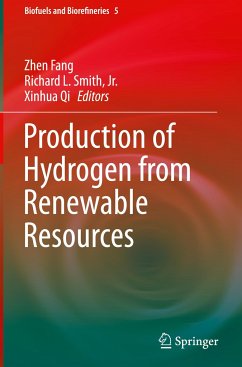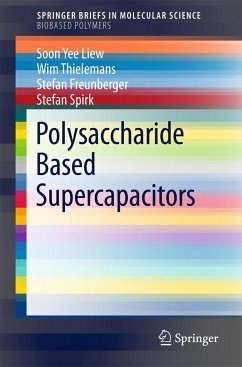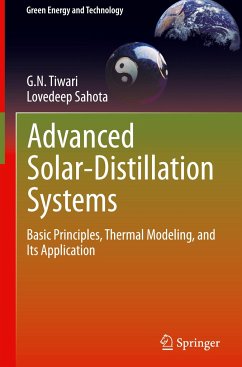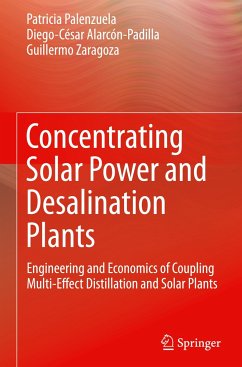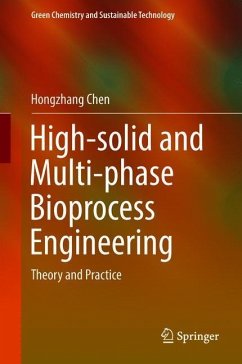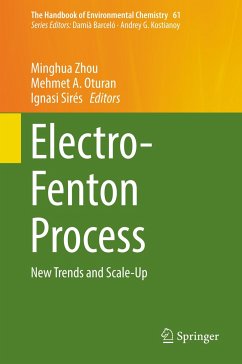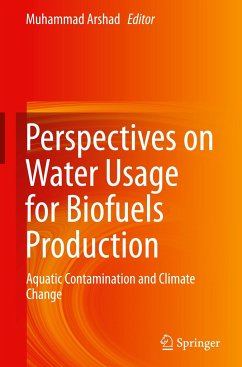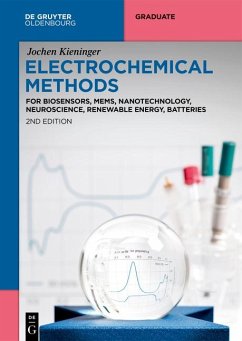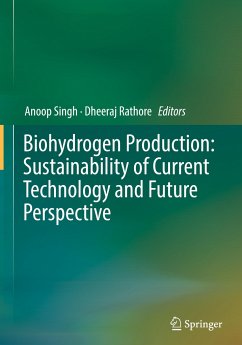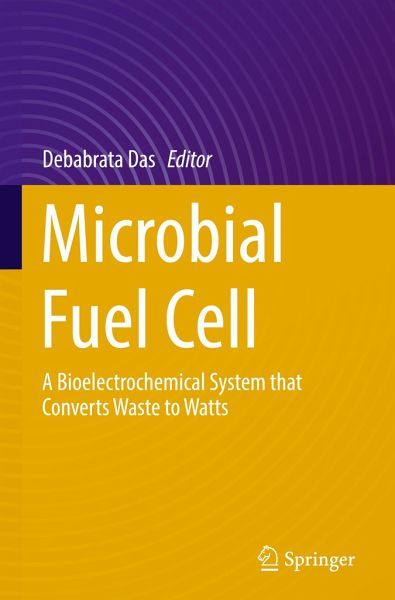
Microbial Fuel Cell
A Bioelectrochemical System that Converts Waste to Watts
Herausgegeben: Das, Debabrata

PAYBACK Punkte
69 °P sammeln!
This book represents a novel attempt to describe microbial fuel cells (MFCs) as a renewable energy source derived from organic wastes. Bioelectricity is usually produced through MFCs in oxygen-deficient environments, where a series of microorganisms convert the complex wastes into electrons via liquefaction through a cascade of enzymes in a bioelectrochemical process.The book provides a detailed description of MFC technologies and their applications, along with the theories underlying the electron transfer mechanisms, the biochemistry and the microbiology involved, and the material characteris...
This book represents a novel attempt to describe microbial fuel cells (MFCs) as a renewable energy source derived from organic wastes. Bioelectricity is usually produced through MFCs in oxygen-deficient environments, where a series of microorganisms convert the complex wastes into electrons via liquefaction through a cascade of enzymes in a bioelectrochemical process.
The book provides a detailed description of MFC technologies and their applications, along with the theories underlying the electron transfer mechanisms, the biochemistry and the microbiology involved, and the material characteristics of the anode, cathode and separator. It is intended for a broad audience, mainly undergraduates, postgraduates, energy researchers, scientists working in industry and at research organizations, energy specialists, policymakers, and anyone else interested in the latest developments concerning MFCs.
The book provides a detailed description of MFC technologies and their applications, along with the theories underlying the electron transfer mechanisms, the biochemistry and the microbiology involved, and the material characteristics of the anode, cathode and separator. It is intended for a broad audience, mainly undergraduates, postgraduates, energy researchers, scientists working in industry and at research organizations, energy specialists, policymakers, and anyone else interested in the latest developments concerning MFCs.



